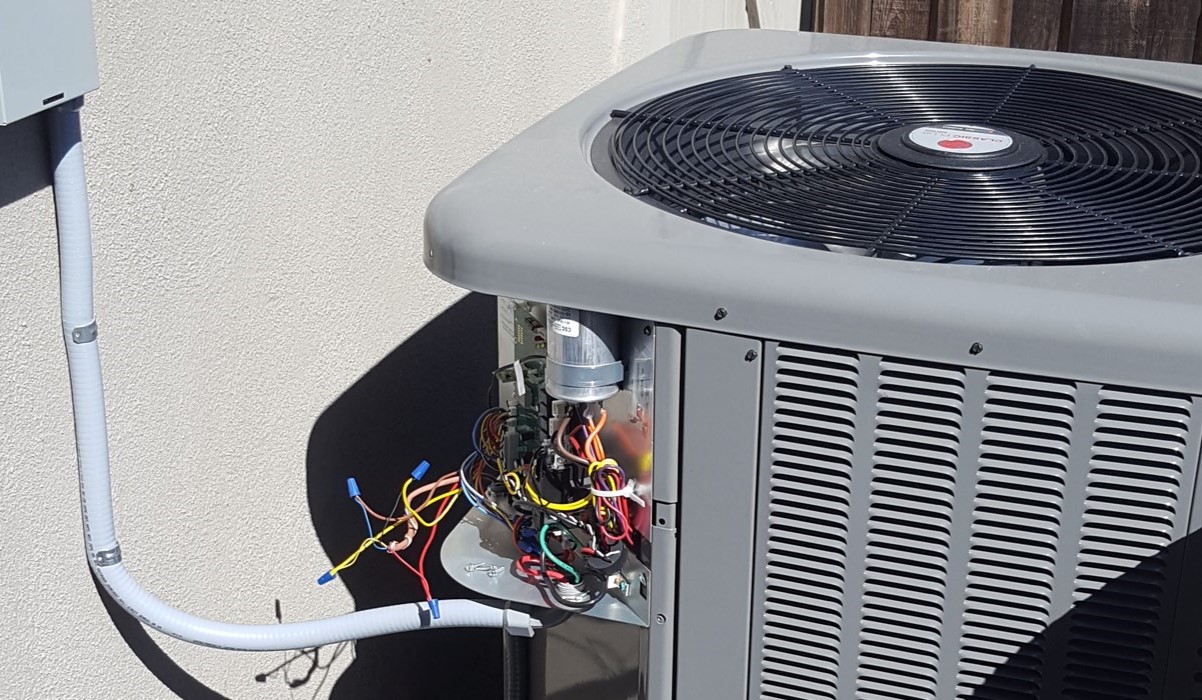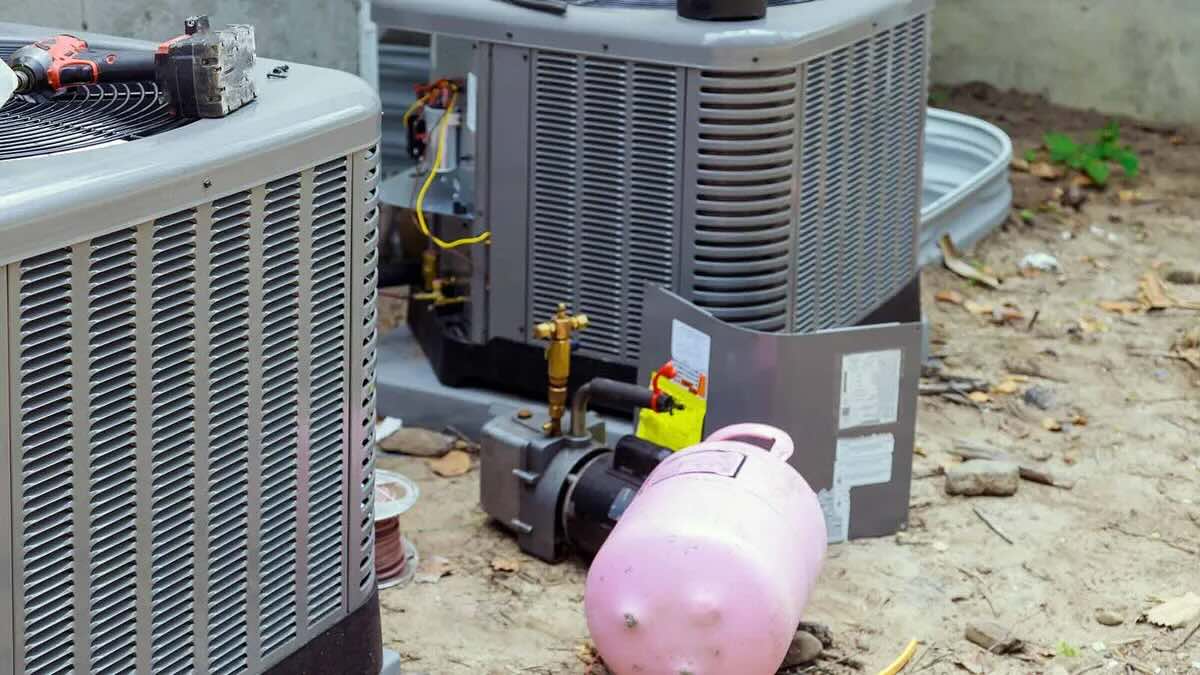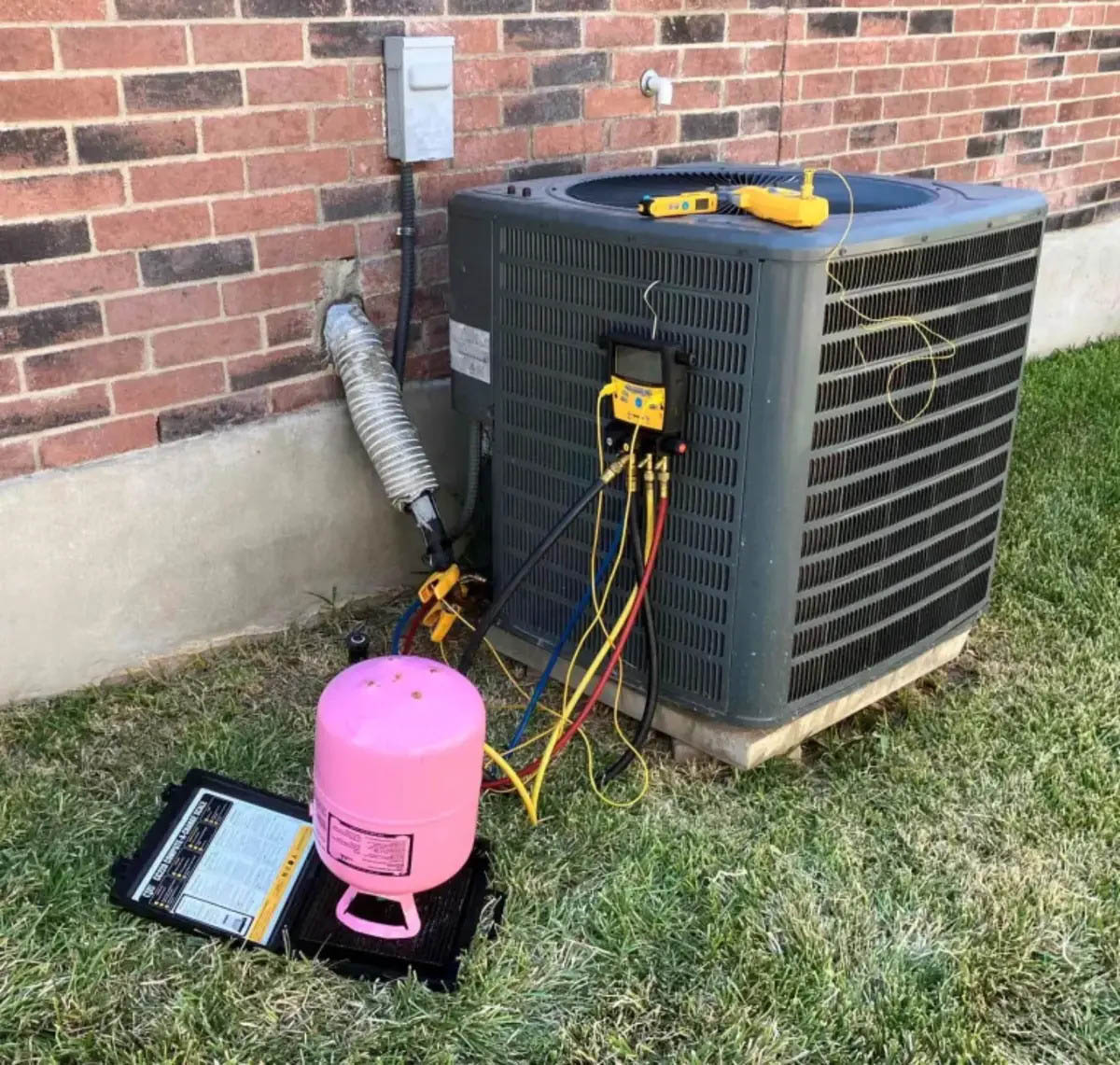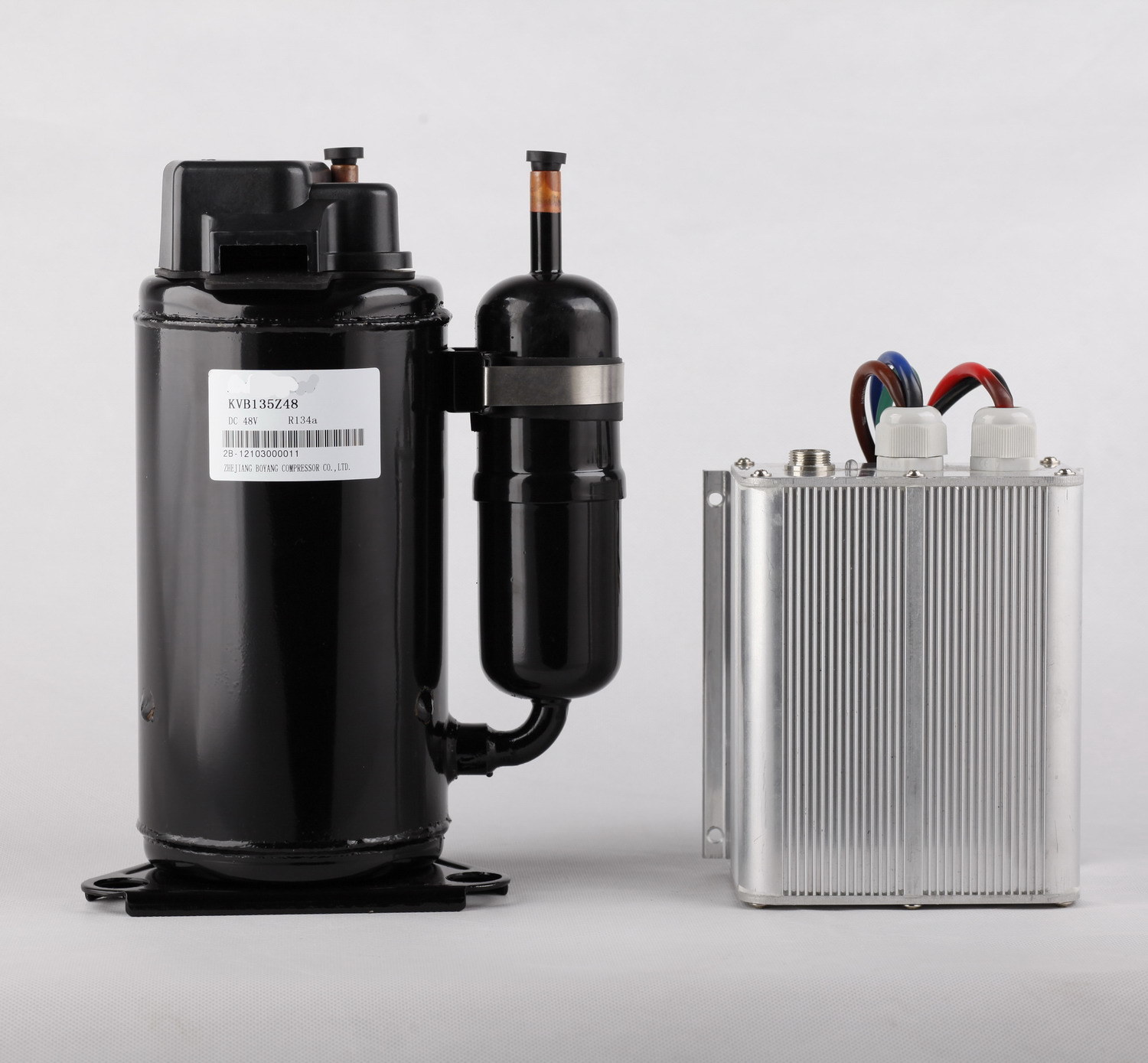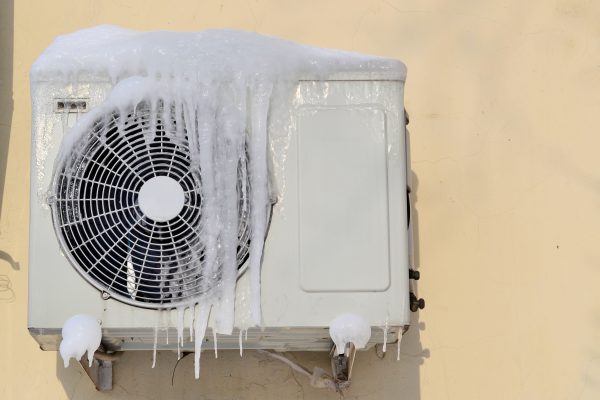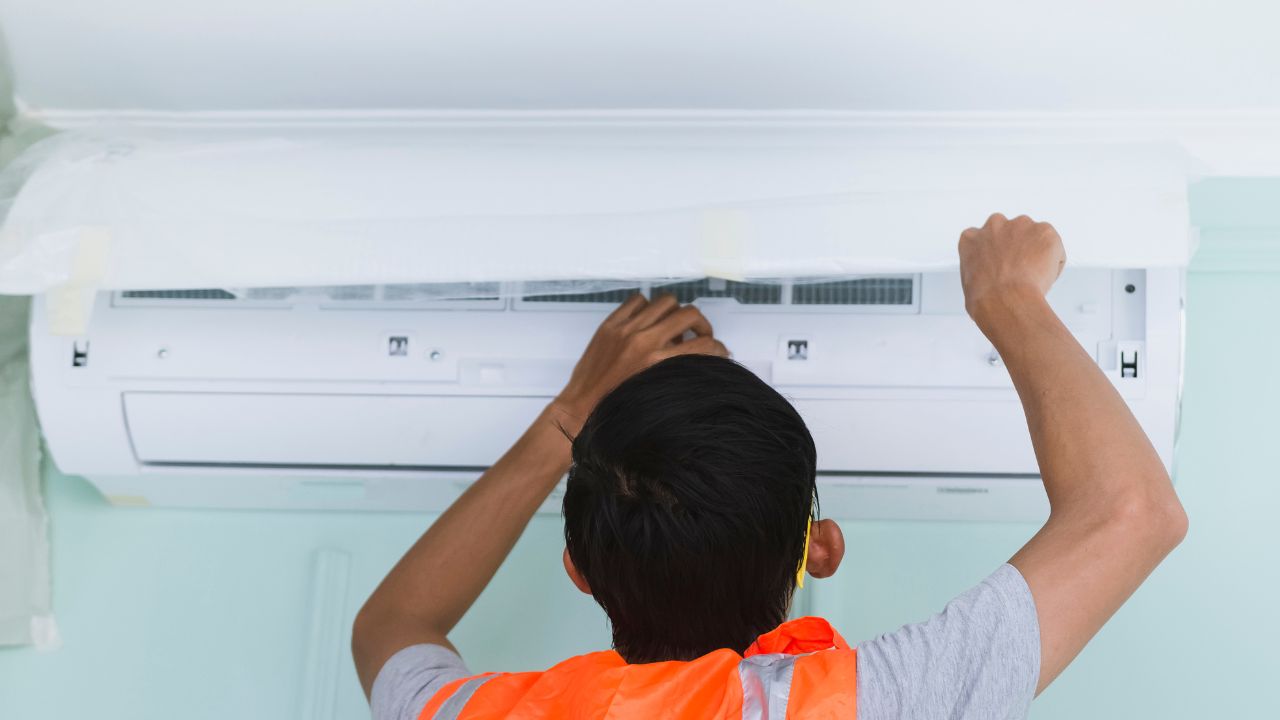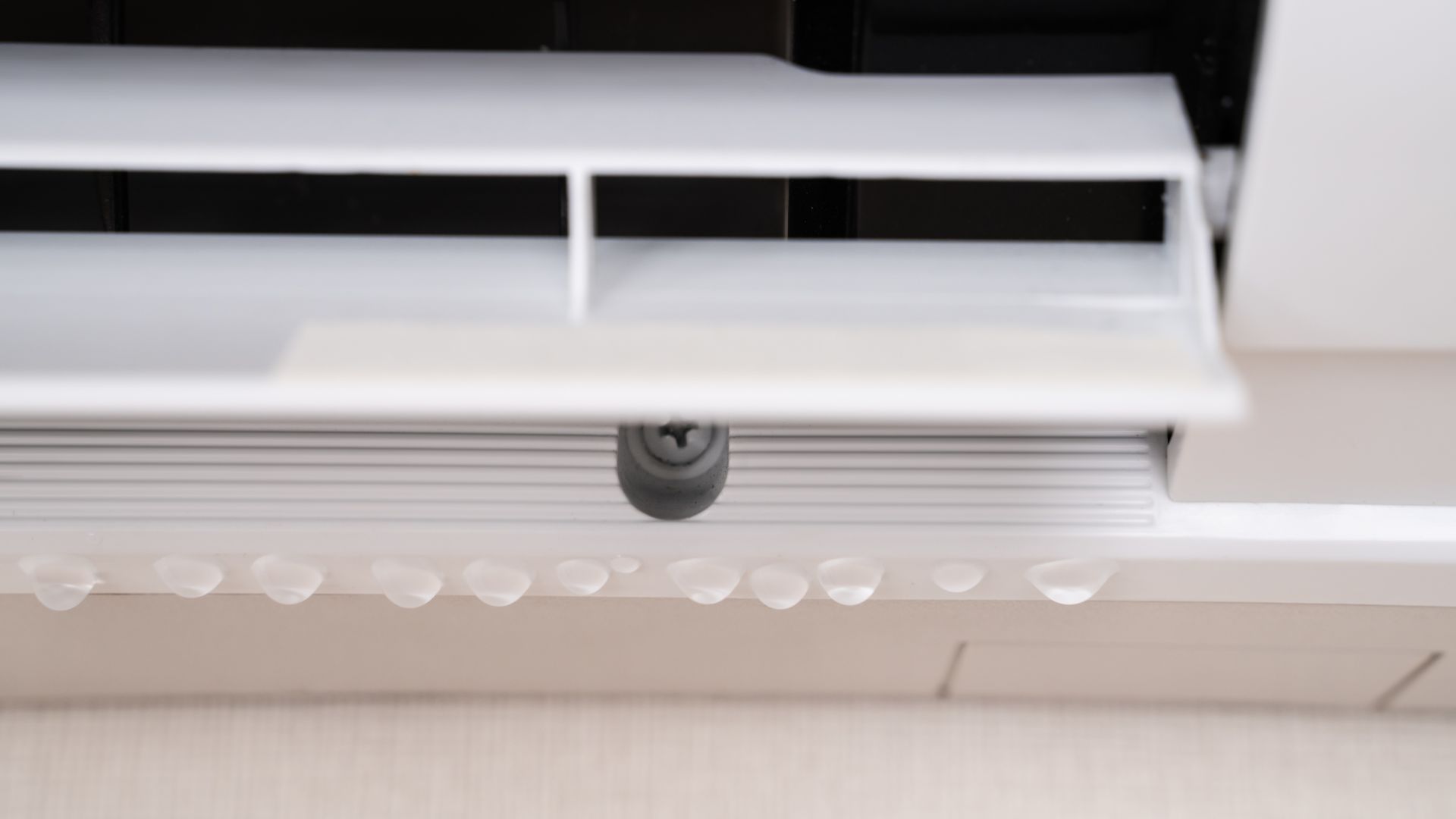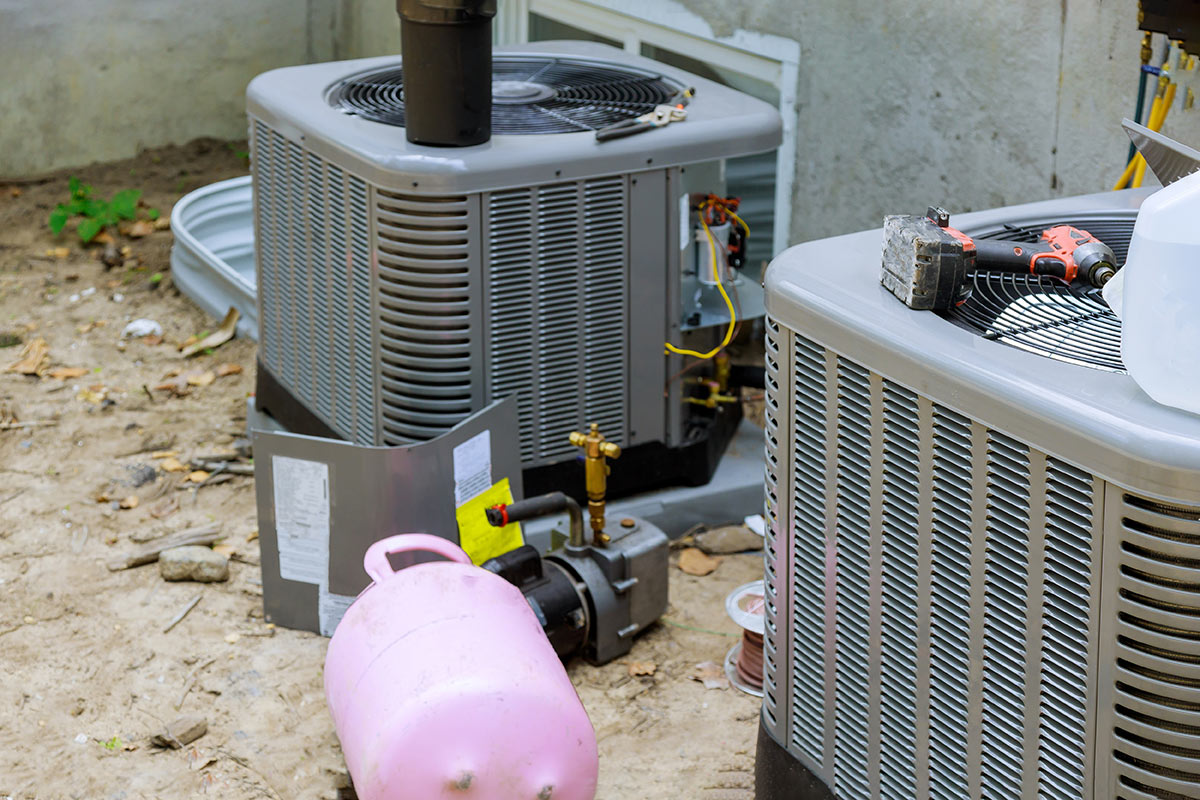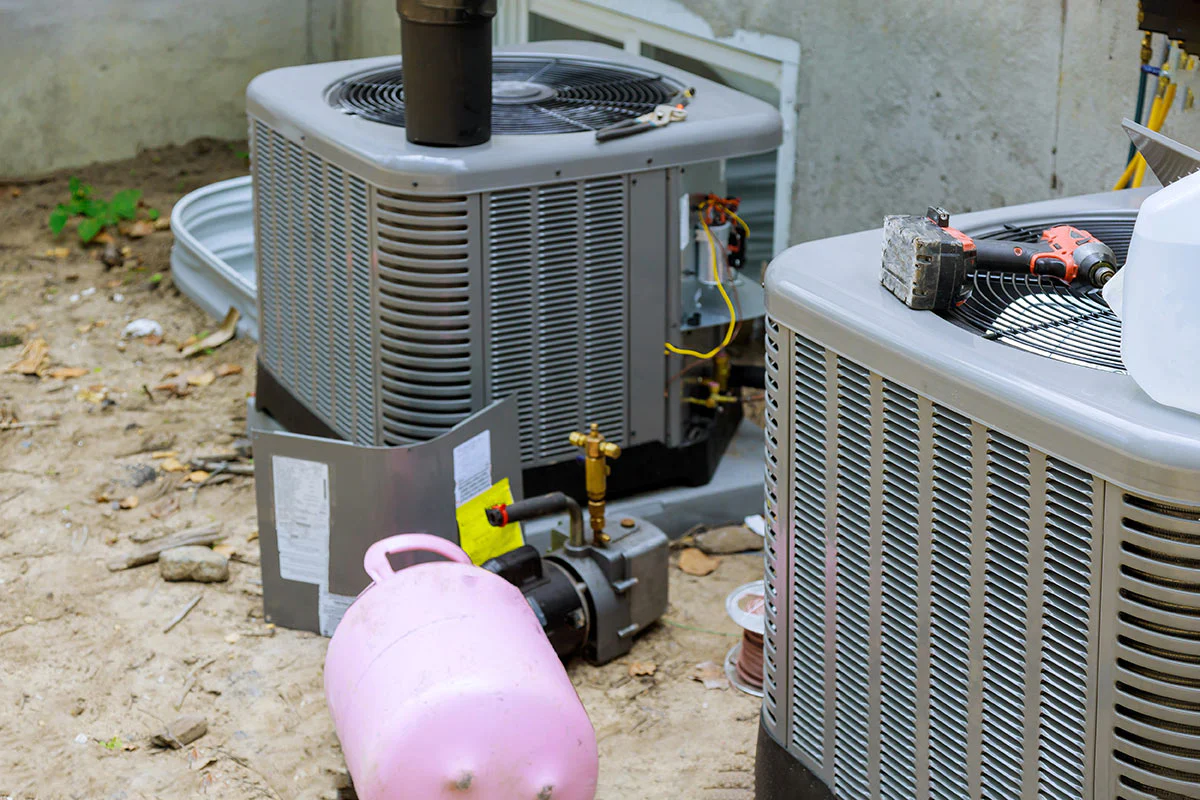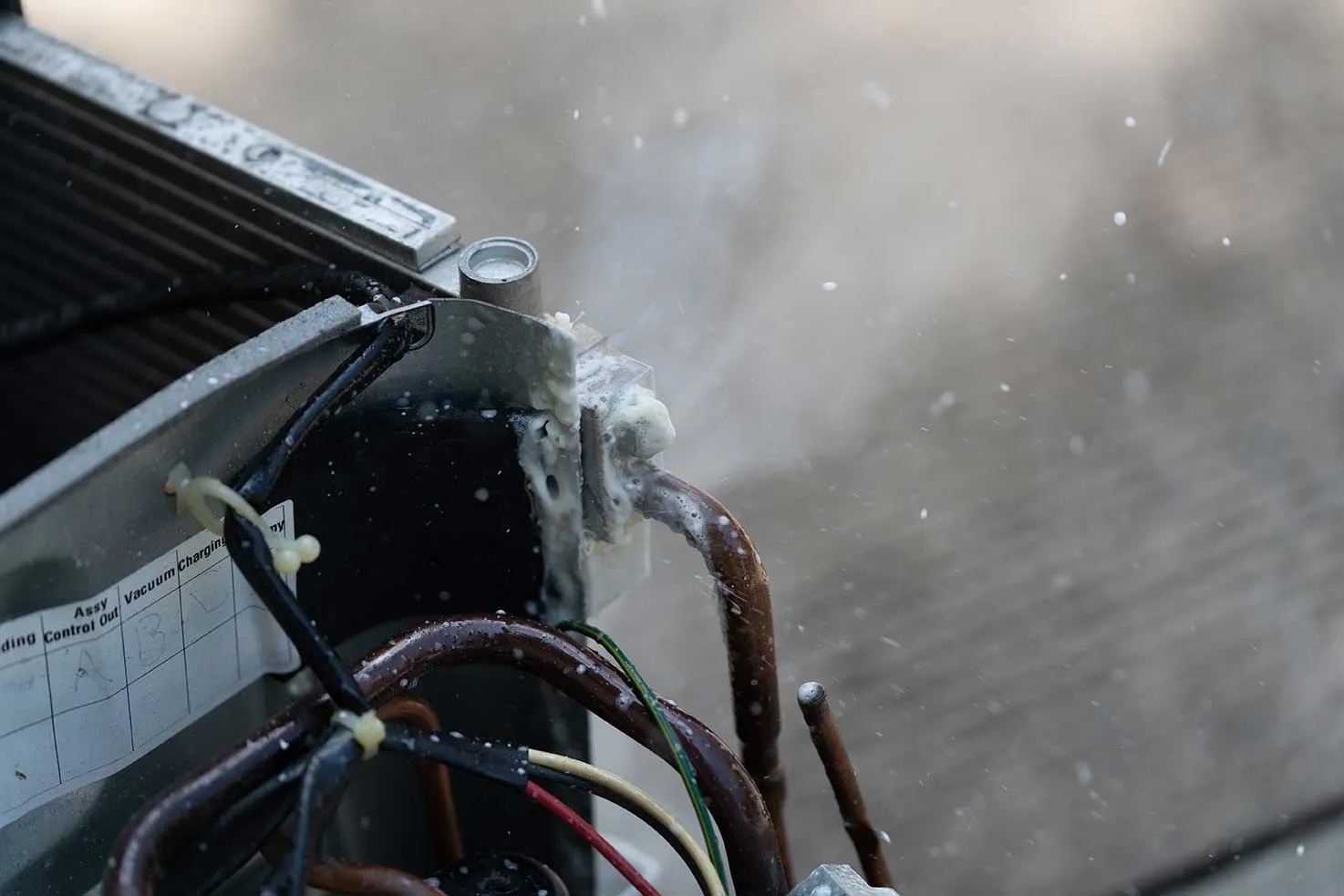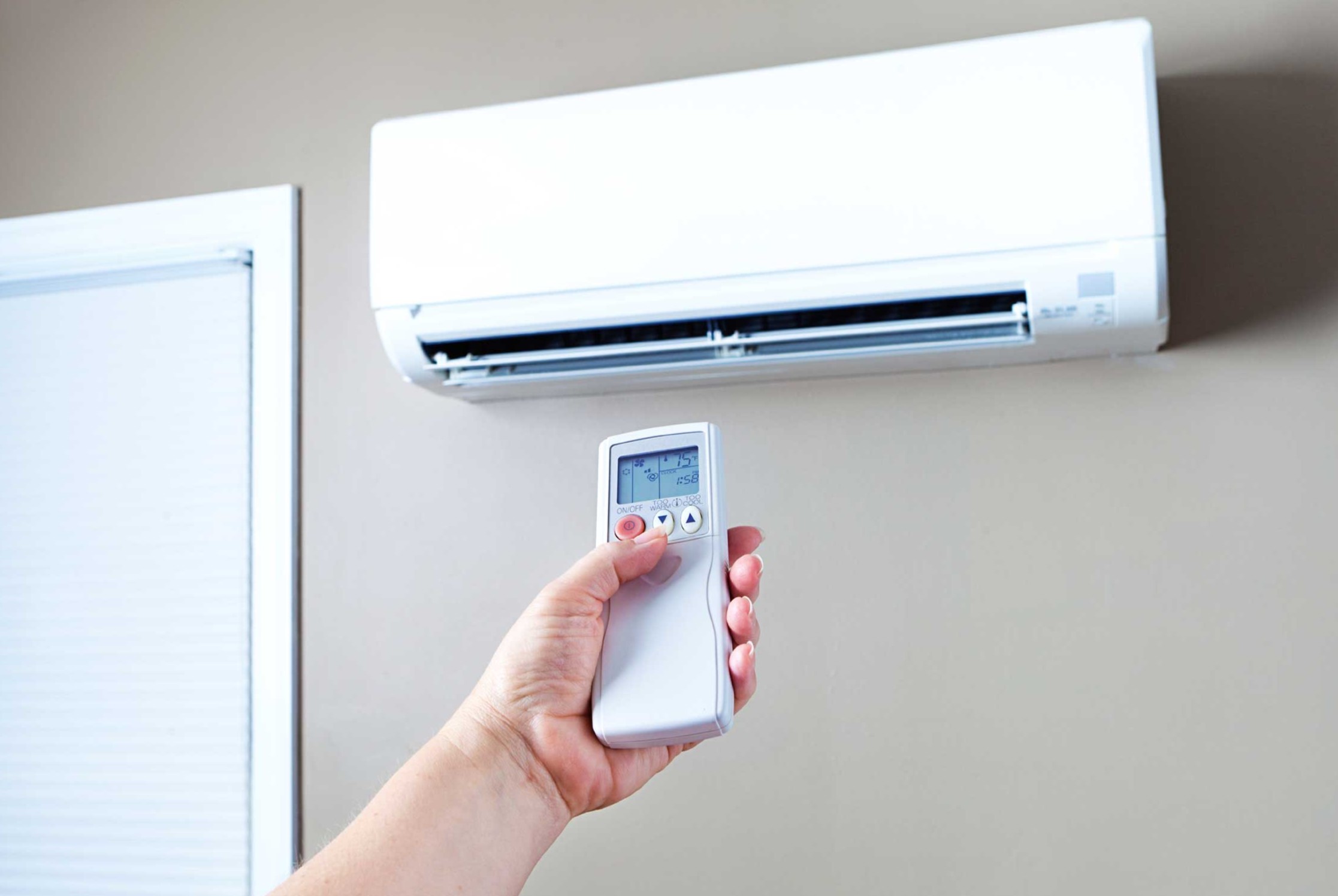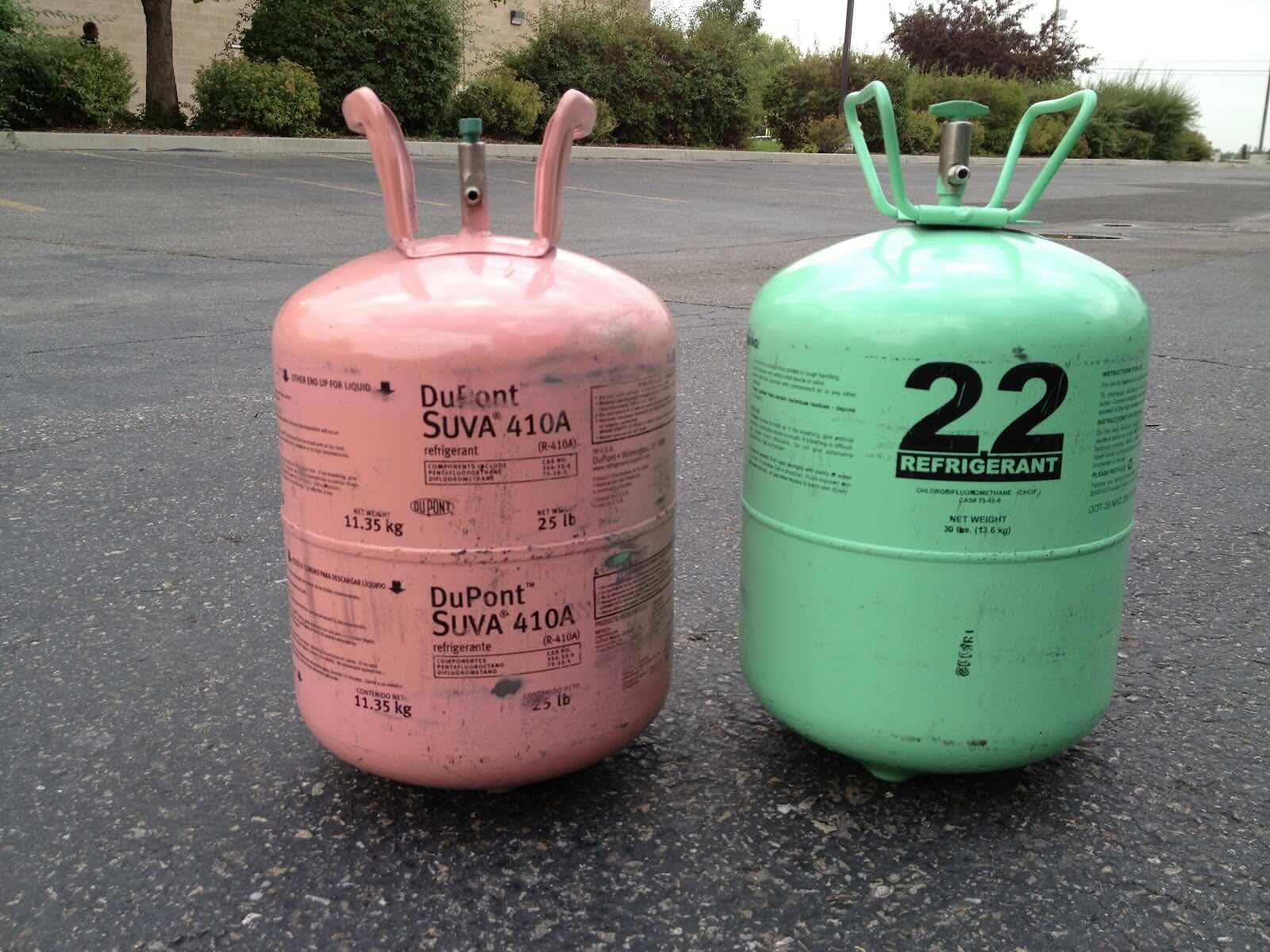Home>Home Maintenance>What Causes Freon Leaks In An Air Conditioner
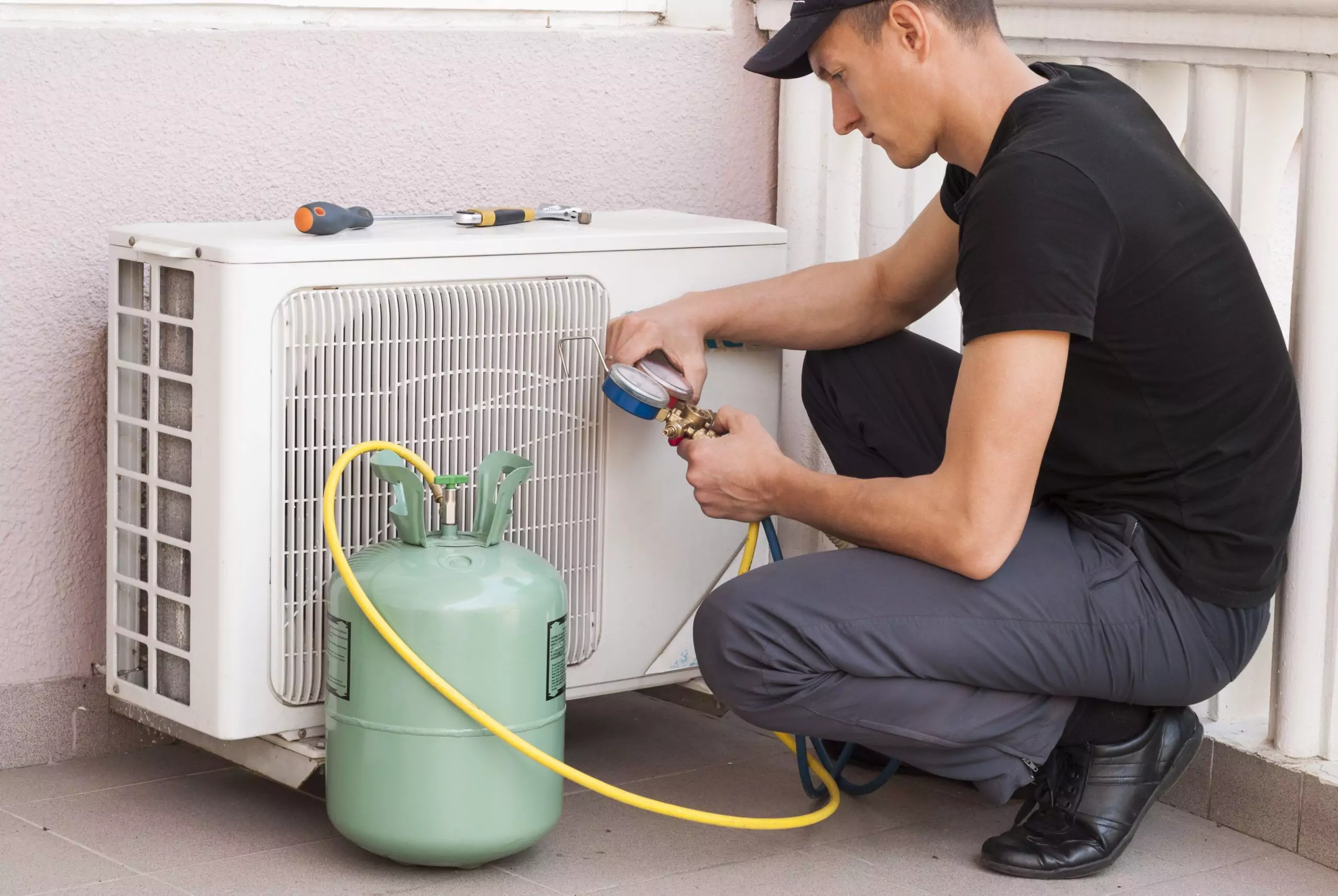

Home Maintenance
What Causes Freon Leaks In An Air Conditioner
Modified: March 7, 2024
Freon leaks in air conditioners are commonly caused by aging components, poor installation, or regular wear and tear. Ensure proper home maintenance to prevent costly repairs in the future.
(Many of the links in this article redirect to a specific reviewed product. Your purchase of these products through affiliate links helps to generate commission for Storables.com, at no extra cost. Learn more)
Introduction
Welcome to the world of home maintenance, where you have the power to keep your living space comfortable, safe, and energy-efficient. One crucial aspect of home maintenance is taking care of your air conditioning system. In order for your AC unit to efficiently cool your home, it relies on a substance called Freon. However, over time, this important refrigerant can develop leaks, leading to a decrease in cooling performance and potential damage to your equipment.
Understanding what causes Freon leaks in an air conditioner is vital for homeowners who want to mitigate the risk and ensure the longevity of their cooling system. By identifying the common signs and causes of Freon leaks, you can take proactive steps to prevent leaks from happening and address them promptly if they do occur.
So, let’s dive into the world of Freon leaks in air conditioners and learn more about how you can keep your AC system running smoothly.
Key Takeaways:
- Keep an eye out for signs of Freon leaks in your air conditioner, such as decreased cooling, frozen coils, higher energy bills, hissing sounds, and oil stains. Prompt action can prevent costly damage.
- Prevent Freon leaks by ensuring proper installation, regular maintenance, and using high-quality components. Detect and repair leaks promptly to maintain your AC’s efficiency and longevity.
Understanding Freon
Before we delve into the causes of Freon leaks, it’s essential to have a basic understanding of what exactly Freon is and how it functions in an air conditioning system. Freon is a brand name for a type of refrigerant known as chlorofluorocarbons (CFCs) or hydrochlorofluorocarbons (HCFCs). These chemicals have been widely used in AC systems for their ability to absorb heat from the indoor air and transfer it outside, resulting in cooler air circulating throughout your home.
Freon works in a closed-loop system, meaning it cycles through various components of your AC unit, transforming from a gas to a liquid and back again. It absorbs heat from the indoor air through the evaporator coil and carries it to the outdoor condenser unit, where it releases the heat into the surrounding air. This continuous process keeps your home cool and comfortable.
It’s important to note that Freon is not consumed or used up during this process. It should remain contained within the AC system and only needs to be topped up or recharged if there is a leak.
Now that we understand the role Freon plays in keeping our homes cool, let’s explore the common signs that indicate a potential Freon leak in an air conditioner.
Common Signs of Freon Leaks
When a Freon leak occurs in an air conditioner, it can have several noticeable symptoms. By being aware of these signs, you can quickly identify and address a potential leak before it causes further damage to your AC system. Here are some common signs of Freon leaks:
- Decreased Cooling Performance: One of the surefire signs of a Freon leak is a decline in your AC’s cooling effectiveness. If you notice that your air conditioner is no longer providing the same level of cooling that it used to, it could be indicating a leak in the refrigerant system. Your home may take longer to cool down, or it might not cool down as much as it did before.
- Frozen Evaporator Coil: Another visible sign of a possible Freon leak is when the evaporator coil inside your air conditioner freezes up. When there is an insufficient amount of refrigerant due to a leak, the evaporator coil can become too cold, causing ice to form on its surface. This can restrict the airflow and further hinder the cooling process.
- Increased Energy Bills: Keep an eye on your energy bills. If you notice a sudden spike in your electricity costs without any other apparent reason, it could be a result of a Freon leak. When there is a leak, your air conditioner needs to work harder and for longer periods to maintain the desired temperature, resulting in increased energy consumption.
- Hissing or Bubbling Sounds: Freon leaks often produce distinct hissing or bubbling sounds. If you hear such noises coming from your air conditioning unit, it’s a strong indication that there is a leak in the refrigerant lines. These sounds are caused by the Freon escaping under pressure and should not be ignored.
- Visible Oil Stains: The refrigerant in your AC system often contains a lubricating oil that helps keep the components running smoothly. If there is a Freon leak, you may notice oily stains or residue around the AC unit or on the refrigerant lines. These stains are a clear sign that there is a leak and that your system requires attention.
If you notice any of these signs, it’s crucial to take action promptly. Ignoring a Freon leak can lead to extensive damage to your air conditioning system and costly repairs. Now that we have explored the common signs of Freon leaks, let’s dive into the underlying causes.
Causes of Freon Leaks in Air Conditioners
Freon leaks can occur in air conditioners due to a variety of reasons. Understanding these causes can help you prevent leaks and ensure the proper functioning of your AC system. Let’s explore the primary factors that contribute to Freon leaks:
- Age and Wear and Tear: Over time, the components of an air conditioner can degrade and become susceptible to leaks. The natural wear and tear that occur with age, such as corrosion, deteriorating seals, or weakened joints, can lead to Freon leaks. Regular maintenance and timely replacement of worn-out parts can help mitigate this cause.
- Poor Installation or Maintenance: Improper installation or inadequate maintenance practices can also contribute to Freon leaks. If an air conditioner is not installed correctly, it may lead to misaligned or damaged refrigerant lines, which can eventually result in leaks. Similarly, neglecting routine maintenance, such as neglecting to replace air filters or failing to inspect the system for potential leaks, can exacerbate the risk of Freon leaks.
- Corrosion or Physical Damage: Exposure to moisture, humidity, or harsh environmental conditions can cause corrosion on the refrigerant lines, coils, or other components of an air conditioner. Corrosion weakens the structure and creates openings for Freon to escape. Physical damage, whether from accidental impacts or poor handling during maintenance, can also cause leaks.
- Vibrations or Pressure Changes: The constant vibrations and pressure changes that occur within an air conditioning system can put stress on the refrigerant lines and other connections. Over time, this stress can lead to leaks. It’s important to ensure that all components are securely fastened and that the system is properly balanced to minimize vibrations.
- Low-Quality Components or Defective Parts: Using low-quality components or parts in an AC system can increase the risk of Freon leaks. Faulty valves, seals, or fittings can fail prematurely or not provide a proper seal, leading to leaks. It’s recommended to invest in high-quality components from reputable manufacturers to minimize this risk.
- Environmental Factors: External factors, such as extreme temperatures, hailstorms, or other severe weather conditions, can also contribute to Freon leaks. These events can cause physical damage to the AC unit or exacerbate existing weaknesses, leading to refrigerant leaks.
By understanding these causes of Freon leaks, you can take proactive steps to prevent them and ensure the optimal performance of your air conditioning system. Regular maintenance, inspections, and addressing any issues promptly can help minimize the risk of leaks. In the next section, we will explore how to detect and repair Freon leaks in your air conditioner.
Age and Wear and Tear
One of the primary causes of Freon leaks in air conditioners is the natural aging process and wear and tear on the components of the system. Over time, the various parts of an air conditioner, including the refrigerant lines, coils, and joints, can deteriorate and develop weaknesses.
As an air conditioner ages, corrosion can occur on the refrigerant lines or fittings, leading to small openings or cracks where Freon can escape. Additionally, the seals that connect different components of the system can degrade, making them prone to leakage. This wear and tear can be accelerated in regions with harsh environmental conditions, such as high humidity or salty air.
Regular maintenance and inspections are essential to detect and address any signs of aging or wear and tear before they lead to major leaks. During maintenance visits, technicians can check for corrosion, worn-out seals, or weak joints and take appropriate measures to repair or replace the affected parts.
When the age and wear and tear of an air conditioner become significant, homeowners may need to consider the possibility of system replacement. The lifespan of an air conditioner can vary depending on factors such as proper maintenance, quality of installation, and usage patterns. On average, air conditioners can last between 10 to 15 years. If your AC system is approaching or surpassing this age range, it may be more susceptible to Freon leaks and other issues.
Additionally, the advancements in technology and energy efficiency over the years have made newer air conditioning models more reliable and less prone to leaks. Upgrading your aging system can not only reduce the risk of Freon leaks but also improve energy efficiency, resulting in lower utility bills.
In summary, the age and wear and tear of an air conditioner can contribute to Freon leaks. Regular maintenance, timely repairs, and considering system replacement when necessary are key to preventing leaks and ensuring the optimal performance of your AC system.
Poor Installation or Maintenance
Poor installation or inadequate maintenance practices are significant contributors to Freon leaks in air conditioners. When an AC system is not installed correctly or is not properly maintained, it can lead to problems with the refrigerant lines and other components, increasing the risk of leaks.
During installation, it’s crucial to ensure that the refrigerant lines are correctly sized and properly connected to the AC unit. If the lines are too long or too short, it can cause stress and strain on the connections, potentially leading to leaks. In addition, improper handling or rough installation can damage the refrigerant lines, causing small cracks or holes that allow Freon to escape.
Inadequate maintenance practices, such as neglecting regular filter changes or failing to schedule routine inspections, can also contribute to Freon leaks. Dirty air filters can restrict airflow, leading to the evaporator coil becoming too cold. This can cause ice to form on the coil, putting pressure on the refrigerant lines and increasing the likelihood of leaks.
Regular maintenance visits by qualified technicians are essential to keep your air conditioning system in optimal condition. During these visits, technicians can inspect the refrigerant lines for any signs of wear, tighten loose connections, and ensure that the system is functioning efficiently. They can also check the refrigerant levels and top up if necessary, reducing the risk of leaks due to low Freon amounts.
If you are getting a new air conditioning system installed, make sure to hire a reputable and experienced professional. Proper installation is key to preventing future leaks and ensuring the long-term performance of your AC unit.
In summary, poor installation or inadequate maintenance practices can contribute to Freon leaks in air conditioners. Proper installation by experienced technicians and regular maintenance visits are crucial to maintaining the integrity of the refrigerant lines and preventing leaks. Taking these preventative measures will help prolong the lifespan of your AC system and minimize the risk of Freon leaks.
Regular maintenance and cleaning of your air conditioner can help prevent freon leaks. Be sure to check for any signs of damage or wear and tear on the coils and connections.
Corrosion or Physical Damage
Corrosion and physical damage are common causes of Freon leaks in air conditioning systems. These issues can weaken the structure of the refrigerant lines, coils, and other components, creating openings through which Freon can escape.
Corrosion occurs when the metal components of your AC system are exposed to moisture or chemicals in the air. Over time, this exposure can cause rust and corrosion, leading to the development of small holes or cracks in the refrigerant lines. Corrosion is more likely to occur in humid environments or in coastal areas where salty air can accelerate the corrosive process.
Physical damage can occur due to various reasons, such as accidental impacts, improper maintenance procedures, or natural disasters. Even a minor dent or bend in the refrigerant lines can create a weakness that can eventually lead to a Freon leak. It’s important to handle your AC system with care and take precautions to protect it from potential damage.
To prevent corrosion or physical damage, it’s recommended to install your air conditioning system in a protected area if possible. This could include placing it indoors or in a designated outdoor enclosure that shields it from harsh weather conditions. Regular cleaning and maintenance, including inspecting the components for signs of corrosion or physical damage, can also help prevent leaks.
If you notice any signs of corrosion or physical damage, such as rust, visible cracks, or dents on the refrigerant lines or other components, it’s important to address them promptly. Depending on the extent of the damage, it may be necessary to repair or replace the affected parts to prevent Freon leaks.
By being proactive and taking measures to prevent corrosion and physical damage, you can minimize the risk of Freon leaks in your air conditioning system. Regular maintenance, inspection, and timely repairs are crucial to maintaining the integrity of your AC unit and ensuring its optimal performance.
Vibrations or Pressure Changes
The constant vibrations and pressure changes within an air conditioning system can contribute to Freon leaks. These factors put stress on the refrigerant lines, connections, and other components, potentially leading to the formation of small cracks or openings through which Freon can escape.
Vibrations can occur within an AC system due to various reasons. The operation of the compressor, fan motors, and other moving parts can create vibrations. Additionally, inadequate balancing or installation can result in excessive vibrations, putting additional strain on the system.
High-pressure changes within the AC system can also contribute to Freon leaks. Pressure changes occur when the refrigerant transitions between its gaseous and liquid states. If the pressure is not properly regulated or if there are fluctuations beyond the recommended range, it can put undue stress on the refrigerant lines and connections.
To minimize the risk of leaks due to vibrations or pressure changes, it’s crucial to ensure that all components are securely fastened during installation. Proper balancing of the system can help reduce vibrations and the resulting stress. Regular maintenance visits can also include inspections to check for any signs of excessive vibrations or pressure issues.
If vibrations or pressure changes are causing Freon leaks in your air conditioning system, a qualified technician may need to make adjustments or repairs. This could involve reinforcing connections, replacing worn-out parts, or adding additional support to minimize vibrations.
It’s important to note that refrigerant leaks can lead to system inefficiencies and can cause more severe damage if left unaddressed. By addressing and reducing vibrations and pressure changes, you can help preserve the integrity of your air conditioning system, prolong its lifespan, and prevent Freon leaks.
Low-Quality Components or Defective Parts
The quality of components used in an air conditioning system can have a significant impact on the risk of Freon leaks. Low-quality or defective parts can lead to weak seals or improper connections, increasing the likelihood of refrigerant leaks.
When it comes to refrigerant lines, valves, seals, and fittings, it’s important to invest in high-quality components from reputable manufacturers. These components are designed to provide proper sealing and minimize the risk of leaks. While low-quality parts may be cheaper initially, they can result in more frequent failures and leaks in the long run.
Defective parts can also contribute to Freon leaks. Manufacturing defects can lead to issues such as improper sealing, weak joints, or weakened materials. Over time, these defects can worsen and cause leaks. It’s important to carefully inspect new components before installation and ensure that they meet the required specifications for your air conditioning system.
To minimize the risk of Freon leaks due to low-quality components or defective parts, work with reputable HVAC professionals who use reliable suppliers. They can help you select components that are known for their quality and durability. Additionally, regular inspections and maintenance visits can help identify any potential issues with components and allow for timely replacements.
If you suspect that low-quality or defective parts are causing Freon leaks in your AC system, it’s recommended to consult with a qualified technician. They can assess the situation, identify any faulty components, and make the necessary repairs or replacements to ensure the proper functioning of your air conditioner.
Remember, investing in high-quality components and addressing any defects promptly can help prevent Freon leaks and optimize the performance of your air conditioning system in the long run.
Environmental Factors
Environmental factors can play a role in causing Freon leaks in air conditioning systems. Various external conditions can contribute to the deterioration or damage of the refrigerant lines and other components, leading to the development of leaks.
Extreme temperatures can put stress on the AC system, especially in regions with extremely hot climates or severe weather conditions. The constant expansion and contraction of the refrigerant lines due to temperature fluctuations can weaken the connections, making them more susceptible to leaks.
In addition to temperature, hailstorms and other severe weather events can also cause physical damage to the AC unit. Hailstones, strong winds, and flying debris can dent or puncture the refrigerant lines, creating openings for Freon to escape.
Other environmental factors such as exposure to salty air in coastal regions or high humidity can accelerate the corrosion process. The corrosive effects of saltwater or moisture can lead to rusting and deterioration of the refrigerant lines, potentially causing leaks.
To mitigate the risks associated with environmental factors, it’s important to take preventative measures. Properly insulating the refrigerant lines and protecting the outdoor unit can help minimize the impact of extreme temperatures and severe weather events.
Regular cleaning and maintenance can also help remove any debris or contaminants that could potentially damage the AC system. Inspections by qualified technicians can detect and address any signs of corrosion or physical damage before they lead to leaks.
Furthermore, if you live in a coastal area or an environment with high humidity, it may be beneficial to select air conditioner models specifically designed to withstand these conditions. These models are often built with corrosion-resistant materials and additional protective coatings to minimize the impact of environmental factors.
By considering and addressing the potential environmental risks, you can help decrease the likelihood of Freon leaks and ensure the longevity and performance of your air conditioning system.
Detecting and Repairing Freon Leaks
Detecting and repairing Freon leaks in your air conditioning system is crucial for maintaining its efficiency and preventing further damage. Let’s explore the steps involved in detecting and repairing these leaks:
1. Visual Inspection: Start by visually inspecting your AC unit and the surrounding area for any signs of refrigerant leakage. Look for oil stains, residue, or discoloration on the refrigerant lines, fittings, or components. These can indicate a possible leak.
2. Electronic Leak Detection: Utilize electronic leak detection tools that can detect the presence of Freon leaks. These tools can sense the refrigerant gases and pinpoint the location of the leak, even in hard-to-reach areas. This method is effective in identifying small leaks that may not be visible to the naked eye.
3. Pressure Testing: Conduct a pressure test to evaluate the integrity of the system. This involves pressurizing the AC system with an inert gas and monitoring the pressure to identify any drops over time. A significant drop in pressure indicates a leak that needs to be addressed.
4. Repairing the Leak: Once a leak has been identified, it’s important to repair it promptly. Depending on the size and location of the leak, repairs may involve replacing a faulty valve, tightening loose connections, or patching small holes. In some cases, extensive leaks may require replacing sections of the refrigerant lines or other components.
5. Recharging the System: After the leak has been repaired, the AC system will need to be recharged with the appropriate amount of refrigerant. This ensures that the system can operate efficiently and maintain optimal performance.
6. Regular Maintenance: To prevent future Freon leaks, it is essential to maintain regular maintenance of your air conditioning system. This includes regular filter changes, cleaning the condenser coils, and scheduling professional inspections to detect and address any signs of wear, corrosion, or potential leaks.
It’s important to note that detecting and repairing Freon leaks can often be a complex task best handled by experienced HVAC technicians. They have the knowledge, tools, and expertise to accurately diagnose and repair any leaks in your air conditioning system.
By promptly detecting and repairing Freon leaks, you can ensure the optimal performance of your AC system, maintain energy efficiency, and prevent costly damages. Regular maintenance and inspections will help to identify and address any potential leaks before they become larger issues.
Conclusion
Taking care of your air conditioning system is vital for maintaining a comfortable and energy-efficient home. Freon leaks in air conditioners can lead to decreased cooling performance, higher energy bills, and potential damage to the equipment. Understanding the causes and signs of Freon leaks is crucial in order to prevent and address these issues promptly.
We have explored the various causes of Freon leaks, including age and wear and tear, poor installation or maintenance, corrosion or physical damage, vibrations or pressure changes, low-quality components or defective parts, and environmental factors. By being aware of these causes, you can take proactive measures to minimize the risk of leaks and maintain the functionality of your AC system.
Detecting and repairing Freon leaks require careful inspection, utilizing electronic leak detection tools, pressure testing, and timely repairs or replacements. It is important to address these leaks promptly to avoid further damage and costly repairs. Regular maintenance visits by HVAC professionals are key in preventing and detecting leaks before they become major issues.
Remember, investing in high-quality components, proper installation, and regular maintenance are essential for the long-term performance and lifespan of your air conditioning system. By being proactive and attentive, you can keep your AC system running smoothly, ensuring a cool and comfortable environment for years to come.
So, don’t overlook the importance of addressing Freon leaks. Take the necessary steps to keep your air conditioner in good condition and enjoy uninterrupted cooling during those hot summer months!
Frequently Asked Questions about What Causes Freon Leaks In An Air Conditioner
Was this page helpful?
At Storables.com, we guarantee accurate and reliable information. Our content, validated by Expert Board Contributors, is crafted following stringent Editorial Policies. We're committed to providing you with well-researched, expert-backed insights for all your informational needs.
